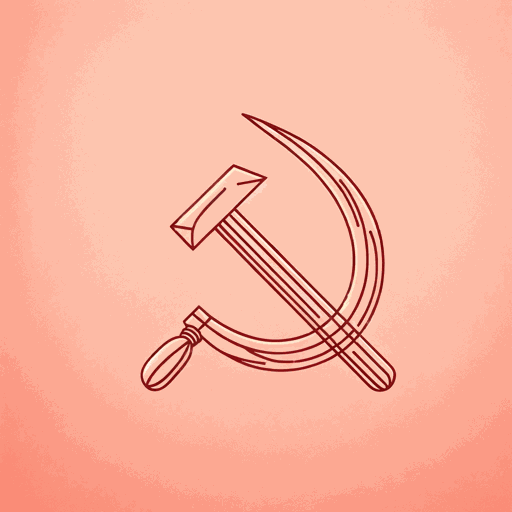44 pages • 1 hour read
Friedrich EngelsThe Origin of the Family, Private Property and the State
Nonfiction | Book | Adult | Published in 1884A modern alternative to SparkNotes and CliffsNotes, SuperSummary offers high-quality Study Guides with detailed chapter summaries and analysis of major themes, characters, and more.
Summary and Study Guide
Overview
The Origins of the Family, Private Property, and the State is an 1884 book by the Marxist philosopher Friedrich Engels. For decades, Engels had been arguing that the abolition of the modern state and its replacement with communism would entail not only the end of capitalism and workers gaining control over the economic means of production but also the abolition of the monogamous family. In Engels’s most famous work, the 1848 Communist Manifesto co-authored with Karl Marx, he mocked those who were aghast at the Communist proposal to abolish the family, suggesting that capitalism had already accomplished that goal, especially among the working class, by turning men and women alike into “a mere instrument of production” (Marx, Karl. “Chapter II. Proletarians and Communists.” Communist Manifesto). Written shortly after Marx’s death, Engels underwent considerable study of the available literature on the evolution of the family, viewing it as a complement to the Marxist view of how society ultimately morphed into the capitalist age and how it would ultimately transcend it. For modern audiences, this book has stood out as an early expression of feminist theory, particularly its critique of modern, monogamous marriage as a condition akin to slavery for women and children, and for praising a prehistorical past in which mothers were the more respected parent.
This summary is based on the Penguin Classics edition, published in 2010.
Content Warning: The source text contains extensive discussions of incest, and includes outdated and racist ideas about the development of societies and cultures. These ideas are referenced in the guide, and the language of the source text is replicated in direct quotes only.
Summary
Engels declares that in writing this book, he is fulfilling Marx’s unrealized intention to apply the anthropological research of Lewis Henry Morgan to Marx’s own theory of dialectical materialism. Materialism holds that all social institutions ultimately reflect economic conditions. This includes the family, and Morgan’s research into how the family has evolved over time provides substantial evidence for the Marxist argument. Morgan’s greatest insight is to discover in prehistoric times a “matriarchal gens” (48), a family structure that passed on the rights and privileges of family through the mother, tracing back to an original female ancestor. The mere existence of such a structure refutes the contemporary notion that marriage has always been a strictly monogamous arrangement with the father squarely in charge. If that arrangement is in fact the contingent byproduct of social forces, then imagining the world before patriarchy makes it possible to imagine a world after.
The book then proceeds in chronological order, beginning with a broad overview of humanity’s progression through three phases of development that Engels, following Morgan’s example, terms “savagery,” “barbarism,” and “civilization.” Engels details a series of premodern family structures in which consanguinity, or the sharing of a bloodline, was the central arrangement, not monogamous marriage. Such systems also tended toward matriarchy, as maternity was far easier to prove than paternity, and thus mothers were the most reliable conveyers of the bloodline from one generation to the next. It was the ancient Greeks who were primarily responsible for the establishment of patriarchy, following an intense period of economic development that induced a handful of powerful families to concentrate wealth in their own hands, ultimately treating their own wives and children as property as well. To preserve their wealth, the patriarchs then created states, formally neutral entities which were in fact charged with preserving the status quo by which the few continued to enrich themselves at the expense of the many.
After a painstaking overview of the transition from matriarchy under the Iroquois in North America and the “barbarian” peoples of Europe to the patriarchy of Greece and Rome, Engels sees the last flash of hope in the German and Frankish tribes which destroyed the Roman Empire and passed on a flicker of individual liberty, which ultimately allowed for the abolition of serfdom. As matters currently stand, capitalism has turned the vast majority of people into producers of commodities, over which they exercise no meaningful control. “Civilization” itself, in Engels’s view, is a nice word for a condition of acute class warfare. Humanity must therefore reach into its past in order to reclaim freedom in its future.
Related Titles
By Friedrich Engels





